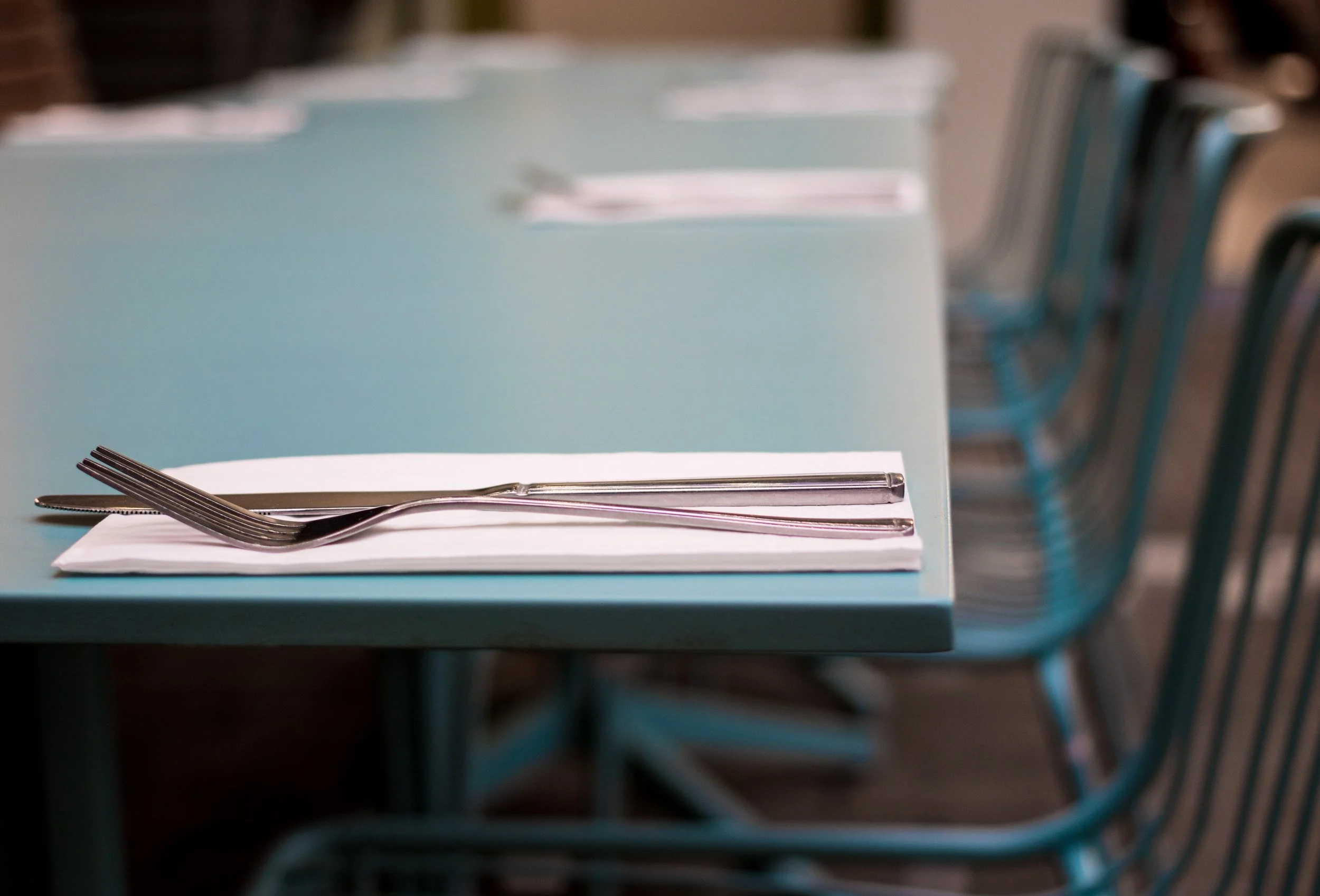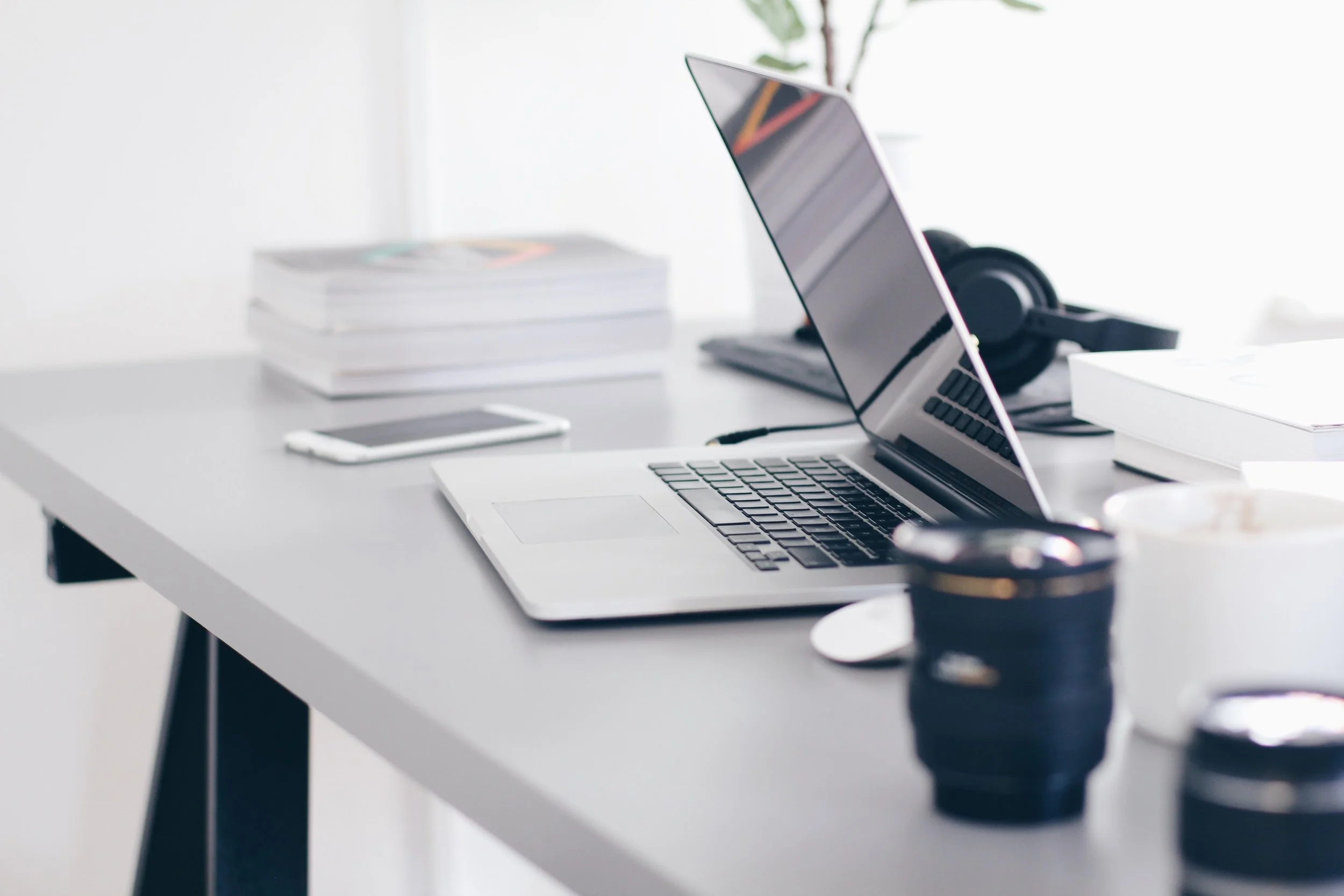Why We Need To Talk About Eating Disorders And Food Allergies
I have lived with (diagnosed) food allergies for four years. I have lived with an eating disorder for over ten. Both my brain and my stomach can't seem to have a straightforward relationship with food. I was lucky that, when I was told gluten and dairy were no longer allowed in my diet, I had been in recovery from disordered eating for just over a year and was in a really good place mentally. Probably the best I'd ever been. Did I cry over having to cut out Domino's pizza and Reese's peanut butter cups? Yes, a lot. Did I just deal with it? Of course I did. From the minute I found out what was making me so poorly, I (sort of) happily obliged, and cut everything that I needed to from my diet.
Within a matter of weeks, I felt great. My symptoms were clearing up, if not gone, and my bloated state had shifted back into something that more resembled 'my' body. For just shy of a year, I was diligent about what I was eating, focused on cross-contamination, and emitted a large chunk of the food that I was used to from my life. I hung out with friends who would eat my favourite greasy pizzas and a pint of Ben and Jerry's in front of me (I don't begrudge them at all, but it was mentally challenging). I no longer went to some of my favourite restaurants, or when I did, ordered a 'safe' option that took the joy out of eating there. It's all for your health, I told myself. And one day, with my mind now constantly pre-occupied on food, I snapped.
I was driving home after a weekend away, and I was hungry. Really hungry. As I went to turn off to the services, where I would ultimately settle on pre-packaged fruit, my body impulsively took me to McDonalds. I hadn't eaten anything from there for over 12 months, and despite still being an hour from home, I ordered the most gluten and dairy-filled meal I could find. I demolished it in what felt like seconds. My reaction was almost as instant, with my stomach immediately bloating out, and the worst stomach pain I'd had in months. Terrified that I would become stuck at a services, ill from my own stupidity, I got myself home quickly, where I spent the next three days poorly. But, despite my stomach's clear distain for the food, and the fact that my health dramatically nosedived, the euphoria of being able to eat something that I'd had to unconsensually restrict was incredible.
Before long, every now and then I would 'treat' myself, more specifically when I knew I had no plans and could get away with being ill for 48 hours. The happiness I had from no longer restricting the food that I enjoyed, in my mind, outweighed the feeling of total shit that I put up with afterwards. I told myself that because my allergies weren't anaphylactic, I wasn't putting myself in that much danger; had they been anaphylactic I felt that I'd be too scared to die (or of the epipen needle) to even take a risk. To me, it was worth the suffering. I saw it that easing up the restriction on my diet would help ease the mental difficulties that I was having, learning to cope with these new dietary requirements and having to forget about everything that I enjoyed (because let's face it, gluten and/or dairy is in a lot of amazing food).
Long-term, it didn't work. Regardless of whether I ate to look after my stomach or not, the dark clouds stuck around in my head, and it didn't take long before I relapsed, hard. As I fell harder into my eating disorder, sticking to a gluten-free lifestyle got harder (luckily I'd appeared to have worked myself out of my severe milk intolerance to something a lot more mild). I allowed myself, in the name of recovery, to give my body what it wanted — almost like my own warped idea of intuitive eating. The symptoms continued to build up and worsen, but I was able to control my eating disorder (in good and bad ways) with the help of my restricted foods. I became anxious about eating around people, especially those who knew that I couldn't eat gluten. People began to comment on my food choices, calling me 'stupid' or saying that I 'can't have it that bad' because I actively chose gluten over gluten-free options. But I paid my price physically in order to feel more on track mentally, and that's what they didn't understand. Even when I speak about my 'gluten baby' (i.e. the bloat that often leaves me mistaken for a heavily pregnant woman) or other gluten-related symptoms, I often approach it lightheartedly out of fear that someone will criticise me for not looking after my body and doing more damage. Do I agree that it's bad for me? Of course, I can see, feel, the damage that it does to me, both short and long term. But what about my brain? Doesn't that need looking after, too?
I had an intern not too long ago with both anaphylactic and non-anaphylactic food allergies, and we got to talking about how this idea of 'restriction for your health' can be just as damaging as restricting because of an eating disorder. Her anaphylactic allergies had been with her since she was a baby, and found them easy, almost natural, to cope with, with the non-anaphylactic allergies that she was diagnosed with at an older age a much more bitter pill to swallow. Someone was agreeing with me that, regardless of your position in the recovery cycle, it's tough. It adds complications to an already compromised relationship with different foods, and heightens the pre-existing pressure and preoccupation with food and eating.
I never realised how much of a trigger my dietary requirements became for me, until I was calling up Beat helpline, asking for help. Of course, in an ideal world, I could happily eat gluten-free and my body would feel great, and my brain would feel even better. But that's just not how it works. I even noticed that, when sat in my Bulimia Recovery Group, that food allergies, eating disorders, and the messed-up connection between the two aren't really spoken about because it's a lesser-known crossover. But that's because when we think of eating disorders, it's once again not included in the overall 'picture', much like fat bodies aren't, or people of colour, or disabled people, or anyone basically not a part of the cis, white, able bodied, emaciated, middle class, female ED cookie-cutter ideal that society pushes.
According to the Food Standards Agency (FSA), more than 2million people in the UK live with one or more food allergies — intolerances not included. Beat says that over 1.25million people in the UK have an eating disorder. Surely these numbers must overlap somewhere?
All eating disorders are complex, but when two food-related issues bump heads, it can feel even more hopeless. It's something I rarely discuss, worried that nobody will 'get it', and I know I'm not the only one. So if you're reading this, and you're in the same (or similar) boat, I beg you — don't be afraid to start talking about it, because it's a conversation that we need to start having.
If you have a food allergy (or any auto-immune/chronic illness/impairment that restricts your diet) and you're feeling trapped in your ED, or you're finding it a challenge in your recovery, know that you are not alone. You can head to our Resources page if you need extra support, plus a trip to your doctor (or even a nutritionist) should never be overlooked, even more so if you are not currently receiving any form of treatment.









